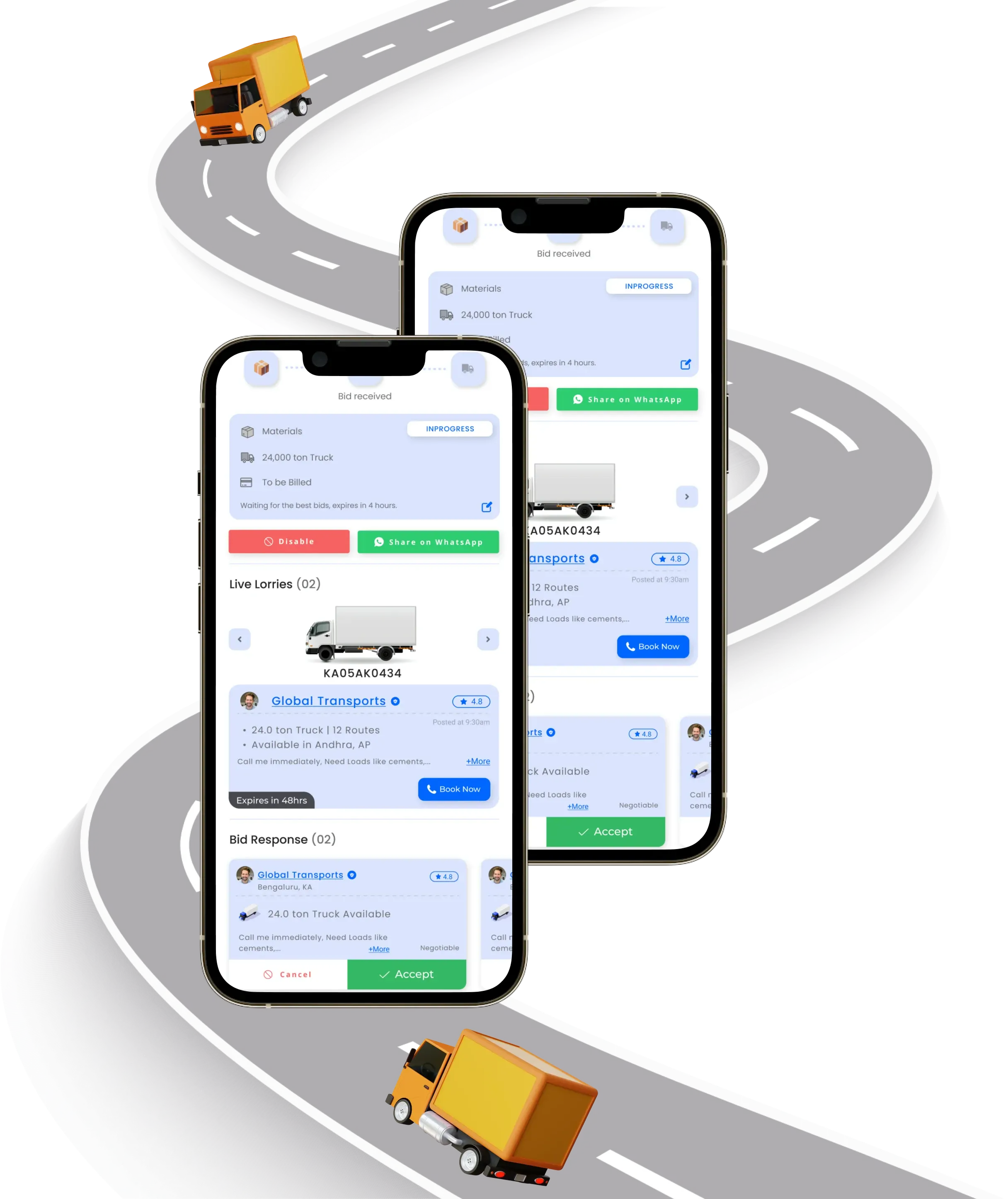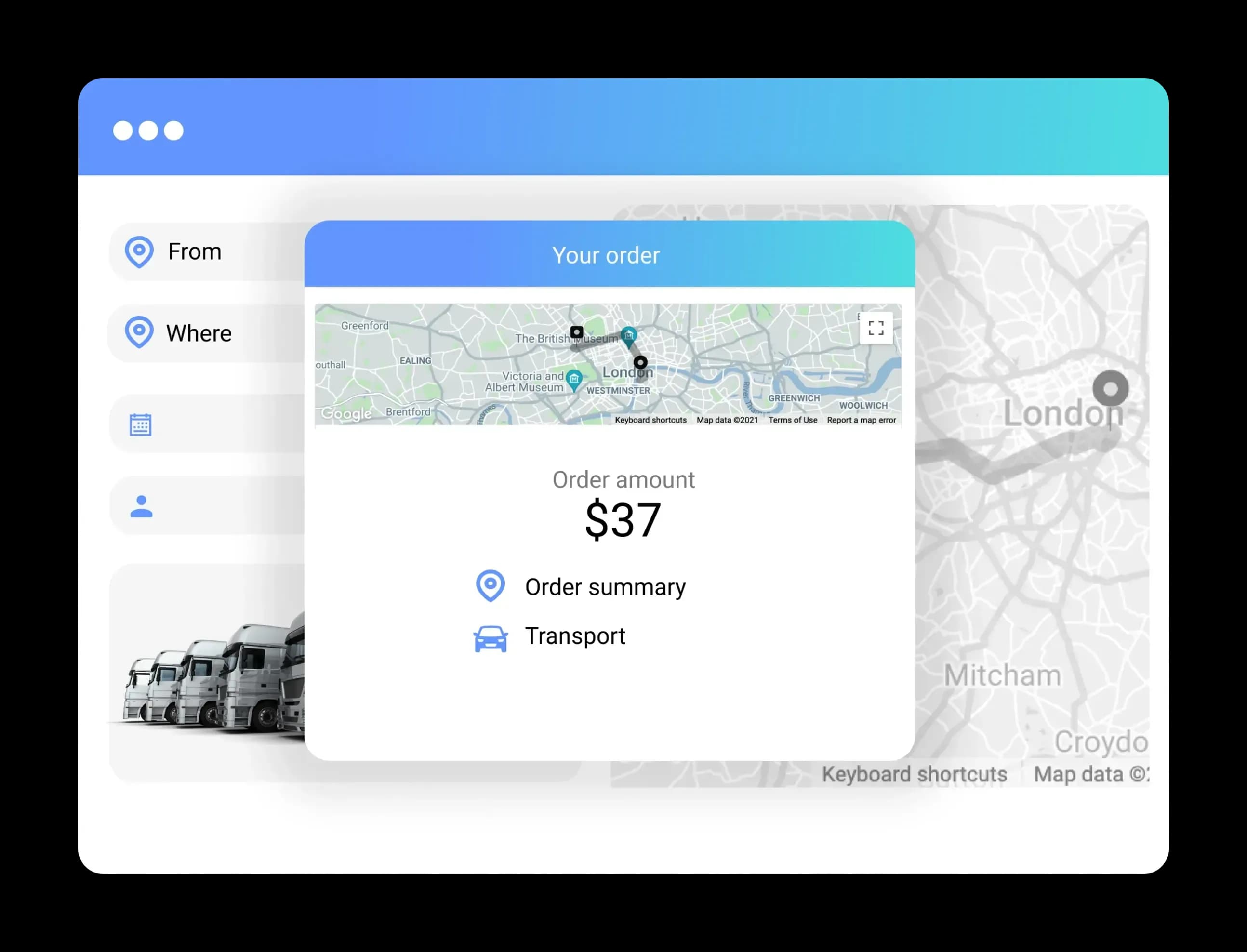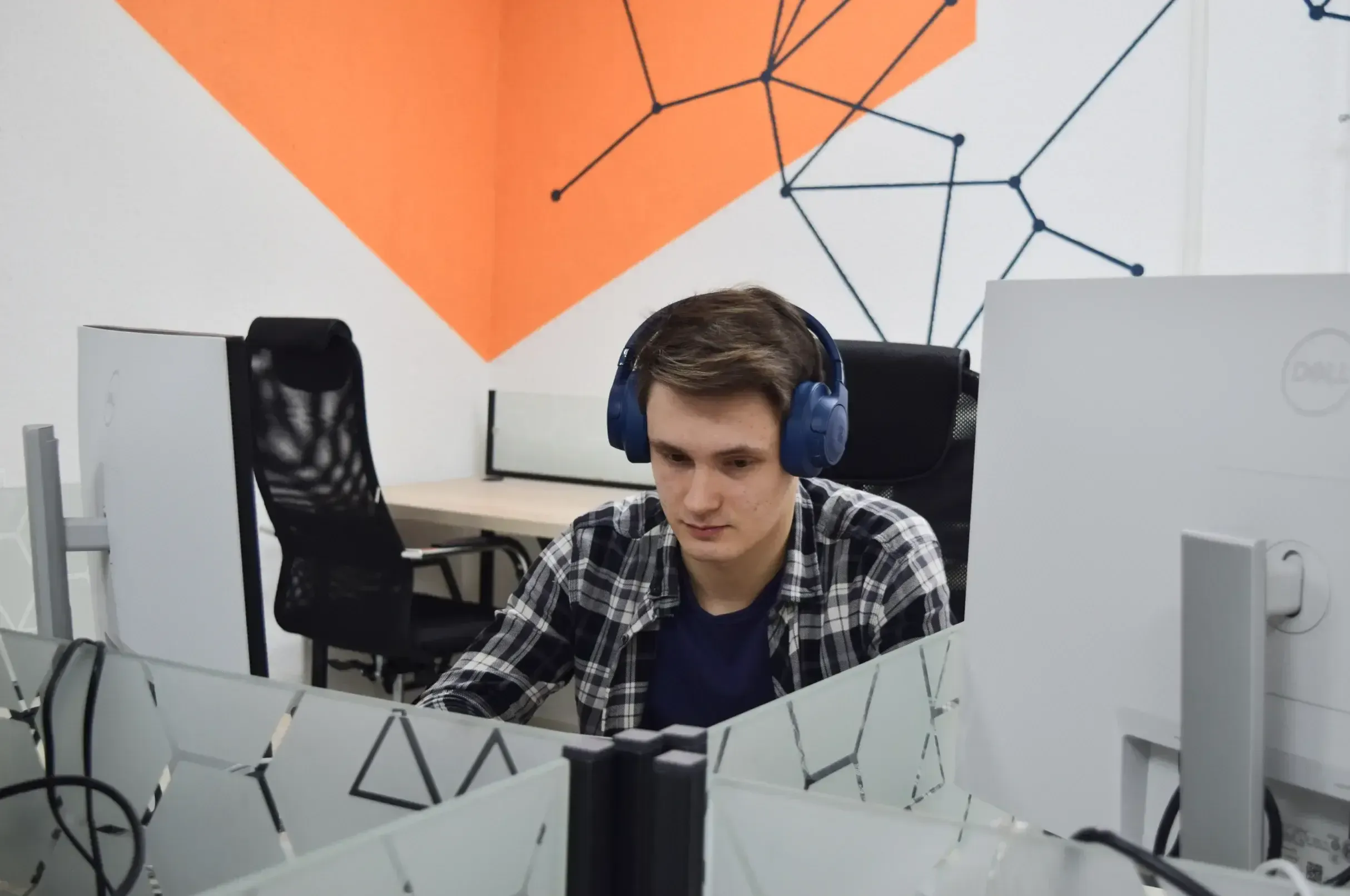
Truck Booking And monitoring Platform
Robust, fast, and secure cargo tracking system
33%
improved user experience
42%
more truck booking orders
24%
reduced fuel consumption
Challenge
Build a platform that would allow clients to book trucks online and monitor the shipment process in real-time.
Solution
Develop a robust system of truck booking, incorporating freight status and location tracking indicators.
Tech Stack
Client
Our client is a Central European logistics company that provides complex services of organizing freight shipment with the use of all types of mobility following the regulations and standards.

Challenge:
As the client's business expanded, they had to manage and process bigger volumes of data due to the increased number of trucks rented to third parties. At this point, our partner came up with an idea for the development of an individual comprehensive logistics solution. The key requirements for the future product included the incorporation of:
online booking feature that allows renting an auto park and controlling vehicle condition and location;
fuel control function for cost optimization;
booking system for auto park management;
efficient and accurate GPS systems for freight tracking in real-time;
fast and easy-to-use app with an intuitive interface;
Java Script calendar for online truck booking;
app notifications informing a client about the booking status;
GPS identification of ways to reduce fuel consumption;
visual interactive reports;
user-friendly sign-up with the possibility to edit the entered data.
The development of comprehensive logistics solutions from scratch is not new for Modsen. Our engineers have been building cargo tracking and management software for 5+ years, having studied all the possible pitfalls on the way to make the development of future projects smooth and issue-free.

Got a similar software development project on your mind?
Estimate a precise timeframe for its implementation.
Team
4
JavaScript engineers
1
Business analyst
2
UI/UX designers
3
QA testers

Development process
Requirements processing:
We consider requirement gathering and documenting as one of the key development phases. The proper understanding of the needs and wants of the client is a prerequisite for successful long-term cooperation with mutually beneficial results. We held 2 pre-development online consultations with the client and initiated a third one after the beginning of the process to make sure we were going the right way.
Team assembly:
Choosing the most relevant and experienced specialists is a task only CTO can cope with. However, we keep the team selection process open for the client and take into account their opinion when compiling the project team. The scope of work implied the following team composition: 4 JavaScript engineers with excellent command of Node JS and React Native technologies, 1 BA, 2 UI/UX designers, and 3 QA testers.
Design:
The visual component of an app is one of the most pivotal aspects of any software. Taking into consideration the complex essence of the project, we had to build a simple, navigable, and responsive interface that would not complicate the company’s logistics management. To achieve this, our UI/UX designers created a visually uncluttered app space that made all the key features more visible and easy to use by all the parties involved.
Coding:
To make sure the unmatched performance of the future app, we decided to go for solid tried-and-tested technologies, along with incorporating cutting-edge solutions available within JS and RN frameworks. Our core team of senior-level engineers chosen for this project did a great job building clean, understandable, and scalable code, able to uninterruptedly support all the front-end functionalities.
Testing:
Given the size and complexity of the project and its extensive set of features, 3 QA testers were needed to increase the velocity of bug identification and streamline the final phase of the development process.
Integration:
After fixing all the bugs and issues, we handed the project for the client’s assessment. As a rule, at this stage, our partners accept the product without further alterations, but in this case, the client asked us to make a couple of adjustments to the UX, which took us 2 more days before the app was finally approved and launched.
Servicing:
Custom logistics app development is an ongoing process that doesn’t stop after the launch. The growing company's needs and changing requirements should be reflected in the software system it employs to reach its business goals. That’s why we provide free 3 months of post-launch support and servicing to every project we’ve released.
Result
It’s been 6 months since the truck booking and monitoring platform was launched and here’re the improvements our partner has documented over this period:
33%
user satisfaction increase24%
reduction in fuel consumption42%
increase in the number of truck booking orders

Let's calculate the accurate cost and resources required for your project